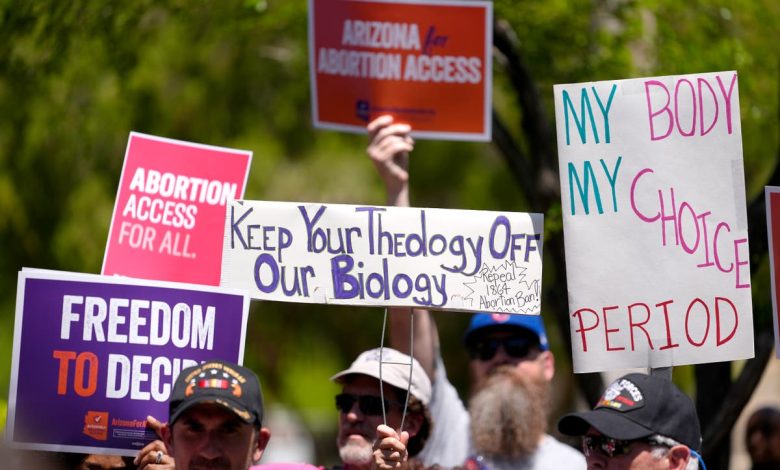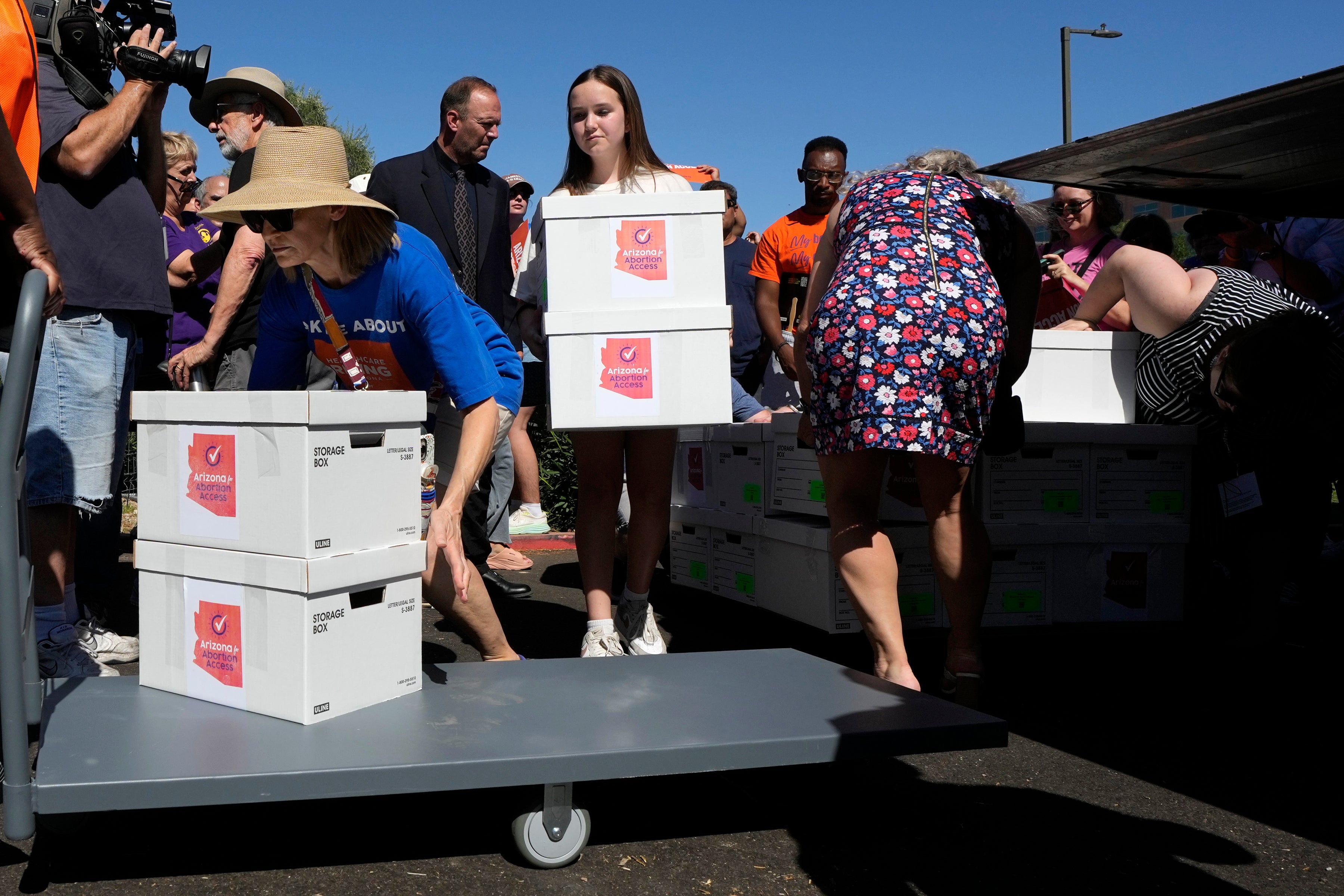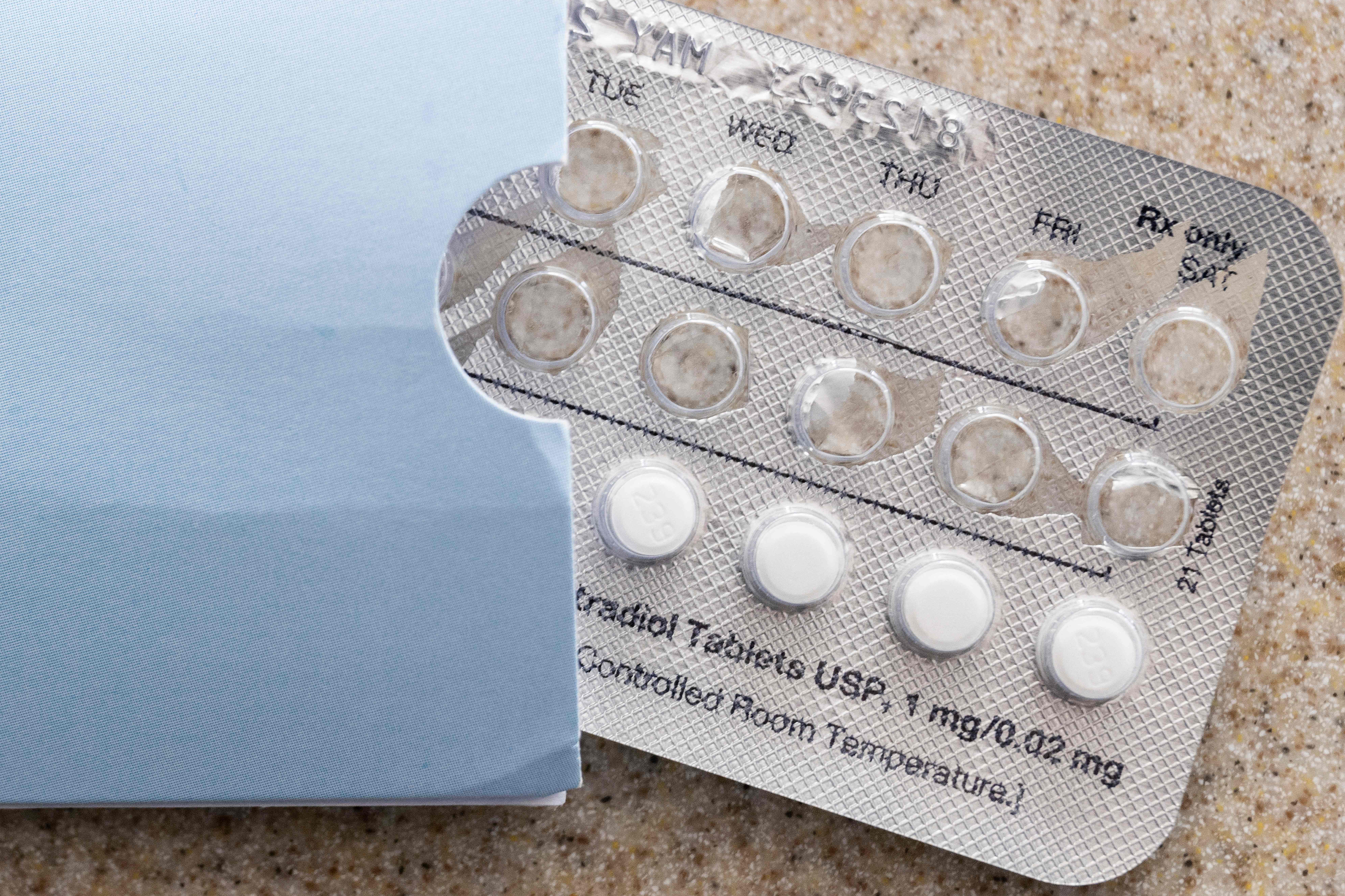Montana becomes latest state to put abortion rights on the ballot – here are the others

Montana voters will have the chance to weigh in on whether abortion rights should be enshrined in the state’s constitution in November, making it the ninth state to put the issue of abortion directly in the hands of residents.
On Tuesday, the Montana Secretary of State’s Office confirmed that the general election ballot would include an abortion rights measure, which will ask residents if the state should enshrine a state Supreme Court ruling that protects the right to abortion up to the point of viability (24 weeks).
Montanans Securing Reproductive Rights, a coalition of abortion rights advocates including the ACLU Montana, Planned Parenthood of Montana, Forward Montana and the Fairness Project had submitted 117,000 signatures to the Secretary of State’s office in support of the measure. That is nearly double the 60,039 required.
Here are the other states where abortion will be on the ballot.
Arizona
The Arizona Secretary of State’s Office confirmed on August 12 that Proposition 139 will be on the November ballot.
The measure will ask voters if the state should establish a fundamental right to abortion in the Arizona Constitution. It would prohibit the state from outlawing abortion before the point of fetal viability – around 24 weeks – and allow for abortion after that point so long as a physician determines it is necessary to protect the health of a pregnant person.
Abortion is currently banned in the state after 15 weeks.

Colorado
On May 17, the Colorado Secretary of State’s office announced that voters will vote on Initiative 89 in November.
The measure would enshrine the right to abortion in the state’s consitution as well as prohibit state and local governments from impeding the ability to access abortion even through health care insurance.
Abortion is currently legal in Colorado.
Florida
The Florida State Supreme Court ruled on April 1 that Amendment 4 will appear on the November ballot.
The measure bars the state government from imposing laws that prohibit, penalize, delay or restrict abortions before the point of viability or when necessary to protect a pregnant person’s health.
Florida currently has a 6-week abortion ban but includes exceptions in cases or rape or incest, to save a pregnant person’s life or health, and if the fetus is not expected to survive the pregnancy.
Maryland
On March 31, the Maryland legislature passed an amendment confirming that Question 1, a proposal enshrining the right to reproductive freedom in the state’s consitution, would be on the ballot in November.
Abortion is legal in Maryland.

Missouri
Missouri voters will decide on Amendment 3 during the general election, the Secretary of State’s Office declared on August 13.
The measure would amend the state’s consitution to include the right to reproductive freedom which includes allowing for abortion up until the point of fetal viability and after as long as a health care professional determines it is necessary.
Abortions are illegal in Missouri except to save the pregnant person’s life or prevent serious risk of physical harm.
Montana
The Secretary of State confirmed on August 21 that a constitutional proposal that enshrines the right to abortion up to the point of viability will be on the November ballot.
Abortion is legal in Montana up until the point of viability.
Nevada
Voters in the state will vote on Question 6, which would enshrine the right to abortion up to the point of fetal viability and after in order to protect the life or health of the pregnant person, the Nevada Secretary of State’s office confirmed on June 28.
Abortion is legal in Nevada up to 24 weeks and after to save the life of the pregnant person.
New York
In June, a state appeals court reinstated Proposal 1 to the November ballot, which would amend the state constitution to add protections to pregnant people, pregnancy outcomes and reproductive healthcare and autonomy.
New York permits abortion up to 24 weeks and after to protect the life and health of a pregnant person or if a physician determines the fetus will not survive.
South Dakota
On May 17, South Dakota certified that Amendment G will be on the ballot in November
Amendment G would prohibit the state from interfering with abortion during the first trimester, allow the state to regulate abortion in ways that “reasonably related to the physical health of the pregnant woman” and permit the state to regulate or prohibit abortion in the third trimester except in cases to preserve the pregnant person’s life or health.
Abortions are outlawed in South Dakota except to save a pregnant person’s life.







